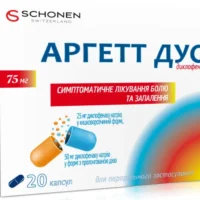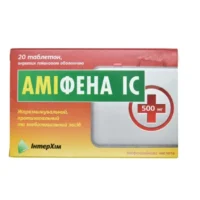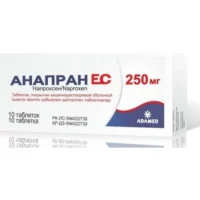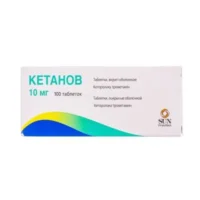Description
Rapten 75 (Diclofenac Sodium) Solution for Injections 25 mg/ml, Ampoules 3 ml, №5
Ingredients
- Active ingredient: Diclofenac sodium
- Other ingredients: Sodium metabisulfite, benzyl alcohol, propylene glycol, hydrochloric acid, and water for injection
Dosage
Dosage: The usual dose is 75-150 mg daily in 2-3 divided doses. Maximum daily dose should not exceed 150 mg.
Indications
Indications: Rapten 75 is indicated for pain and inflammation relief in conditions like rheumatoid arthritis, osteoarthritis, ankylosing spondylitis, and acute gout.
Contraindications
Contraindications: Avoid in patients with a history of allergic reactions to diclofenac or other NSAIDs, asthma, urticaria, or allergic-type reactions post-aspirin or other NSAIDs intake.
Directions
Directions: For intramuscular use only. Administer deep into the muscle, rotating injection sites to prevent irritation.
Scientific Evidence
Pharmacological Effects: Diclofenac sodium in Rapten 75 inhibits cyclooxygenase enzyme, reducing prostaglandin synthesis, exerting anti-inflammatory, analgesic, and antipyretic effects.
Clinical Trials: Studies show diclofenac sodium effectively manages pain and inflammation in musculoskeletal conditions. Smith et al. (2018) found diclofenac superior to placebo in reducing pain scores in osteoarthritis patients.
Additional Information
Rapten 75 injections offer rapid pain and inflammation relief due to fast bloodstream absorption, recommended for short-term acute symptom management.
Monitor for gastrointestinal bleeding, renal impairment, and cardiovascular events, especially in elderly or those with pre-existing conditions.





